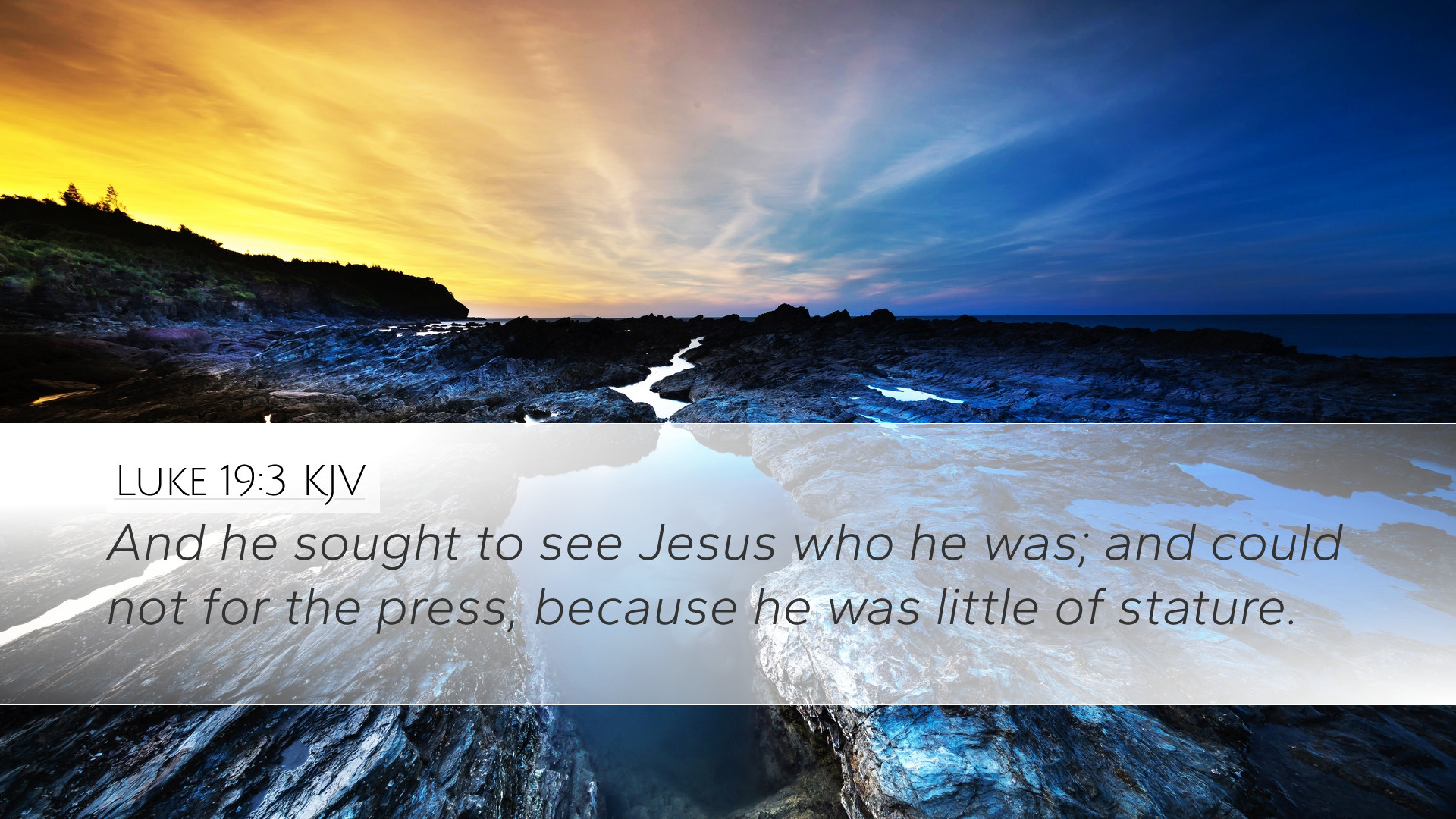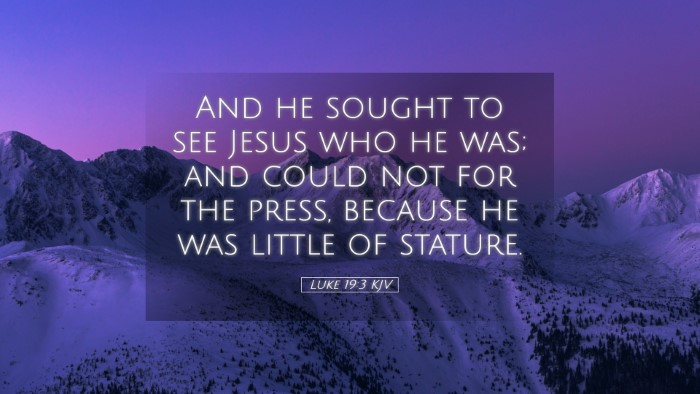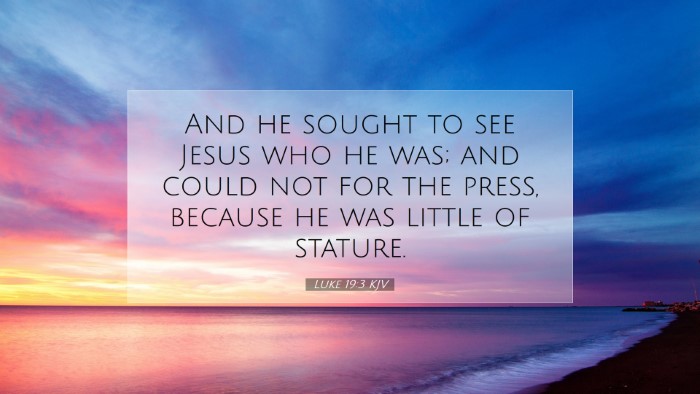Commentary on Luke 19:3
Luke 19:3 states, "And he sought to see Jesus who he was; and could not for the press, because he was little of stature." This verse introduces the character of Zacchaeus, a chief tax collector, who sought an encounter with Jesus, demonstrating the themes of desire, obstacle, and the transformative power of faith.
Contextual Background
Zacchaeus, a Jew working for the Roman authorities, symbolizes the social and religious rejection faced by those deemed sinners. His position as a tax collector illustrates the tension between the Jewish population and the occupying Roman powers. The setting of Jericho, notable for its seasonal fluctuations due to the influx of pilgrims, provides a vibrant context for this encounter.
Summarization of Key Commentatorial Insights
Matthew Henry's Commentary
Henry highlights Zacchaeus’s faith-driven determination to see Jesus despite the social barriers and his physical limitations. He notes that Zacchaeus's wealth and position did not afford him access to Jesus but rather highlighted his isolation. His small stature serves as a metaphor for the humility needed to approach Christ. Henry emphasizes the nature of spiritual hunger that transcends social status, as Zacchaeus longs for salvation and is willing to take risks to find it.
Albert Barnes' Notes on the Bible
Barnes provides an exegesis of the term "sought." He notes that this signifies not a casual desire, but a deep and earnest quest for understanding and encounter with Jesus. The phrase "could not for the press" indicates a physical barrier created by the crowd surrounding Jesus, a metaphor for the societal pressures and obstacles individuals face in seeking God. Furthermore, Barnes points out the psychological implications of being of "little stature," illustrating the idea that external circumstances can hinder spiritual pursuit but cannot extinguish the inner desire to know Christ.
Adam Clarke's Commentary
Clarke expands on the significance of the crowd in this narrative. He suggests that the throngs of people represent barriers to salvation that are often imposed by social structures and prejudices. He alludes to Zacchaeus's strategic decision to climb the sycamore tree, demonstrating both creativity and desperation in his pursuit. Clarke indicates that this act of climbing symbolizes a spiritual elevation above worldly limitations, allowing the seeker to gain a broader perspective of Jesus. He argues that Zacchaeus's physical ascent mirrors the spiritual ascent we must undertake to encounter Christ meaningfully.
Theological Reflections
This verse encapsulates profound theological themes pivotal for contemporary application:
- The Pursuit of Christ: Zacchaeus’s journey reminds us that genuine desire for Christ requires intentional pursuit and overcoming barriers. The faithful must navigate societal expectations, personal doubts, and obstacles to draw nearer to God.
- The Nature of Salvation: The text illustrates the inclusivity of Christ’s ministry. Zacchaeus, representing sinners, finds acceptance and grace. This speaks to the Church's mission in reaching those marginalized by society.
- Humility and Transformation: Zacchaeus’s small stature becomes symbolic of humility, an essential posture for those seeking Christ. The call to ascend spiritually often begins with humbling oneself.
Practical Application for Ministry
For pastors and theological students, this passage serves as a reminder to:
- Engage actively with those on the social margins, recognizing that the pursuit of Christ does not conform to societal expectations.
- Encourage congregants to overcome the barriers that prevent them from seeking Christ, understanding that faith often requires an active and creative response.
- Instill in the community the importance of humility as they witness and interact with Christ through scripture, prayer, and community.
Conclusion
Luke 19:3 encapsulates a multifaceted narrative that speaks to the heart of Christian faith. Zacchaeus's story is a powerful reminder that encountering Jesus often requires overcoming social and personal obstacles. Through the insights of ancient commentators, we glean not only the depth of this passage but also its abiding relevance today. This encounter with Christ opens pathways to transformation, extending grace to all who earnestly seek Him.


